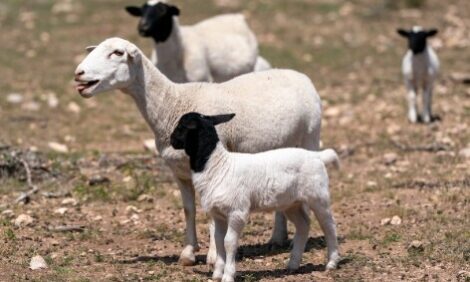



Glasgow engineers lend support to calf diagnosis project
Researchers developing the first commercial one-step rapid test for calf pneumoniaResearchers from the University of Glasgow’s James Watt School of Engineering are part of a new consortium which is developing the first commercial one-step rapid test for calf pneumonia.
Global Access Diagnostics (GADx), a social enterprise prioritising equitable access to diagnostics and driving local manufacturing, today announced the development of RaDiCal, a one-step molecular lateral flow test to enable rapid diagnosis of pneumonia, one of the most significant diseases affecting calves.
The test is being developed through a collaborative consortium, including representatives from the University of Surrey, University of Glasgow, Cardiff University, and Westpoint Farm Vets, to provide a low-cost platform to be used by veterinarians or farmers on-farm. The project is funded by the Biotechnology and Biological Sciences Research Council (BBSRC).
Pneumonia is one of the most significant diseases affecting calves, costing the UK cattle industry an estimated £50 million a year. Resulting from GADx’s participation in a BBSRC Endemic Livestock Disease Priming Partnerships workshop and driven by challenges outlined by farmers, the consortium has combined expertise in microbiology, veterinary infectious disease and diagnostic test development to create RaDiCal.
The test is a pioneering molecular lateral flow platform which can be linked to a mobile phone digital platform for easy interpretation of results, enabling farmers and vets to diagnose calves on-farm, and subsequently take rapid and informed action to facilitate improved disease management and support responsible antibiotic stewardship.
Professor Jon Cooper is leading the University of Glasgow’s contribution to RaDiCal. For several years now, Professor Cooper and colleagues have been working to develop low-cost lateral-flow diagnostics for diseases including malaria and schistosomiasis for use in areas with limited access to healthcare. They have been field-tested in Uganda with support from local researchers and government.
Prof Cooper, Wolfson Chair of Bioengineering at the James Watt School of Engineering, said: “Effectively diagnosing infections is key to managing the spread of veterinary and livestock infections, which helps to ensure global food security and protect public health.
“We’re pleased to be part of the RaDiCal consortium, which has a great deal of potential to support vets and farmers with rapid on-site diagnosis of pneumonia in calves.”
Dr Alison Wakeham, Head of Agriculture and Animal Health, GADx, said: “GADx’s expertise in lateral flow technology allows us to support a variety of disease areas. By applying our platform within the livestock industry, we are glad to be able to help improve disease management for one of the most significant diseases affecting calves. Working alongside other experts in this field through the consortium and with the support of BBSRC funding, we are looking forward to progressing the project and bringing the transformative test to market. Being able to accurately diagnose and treat early in the disease cycle is critical to prevent spread and control outbreaks.”
Professor Mark Chambers, Professor of Microbiology and Disease Intervention, University of Surrey School of Veterinary Medicine, who is leading the project, commented: “The University of Surrey is delighted to be leading the RaDiCal project and will be using its experience of veterinary infectious diseases and test development within an exciting consortium of other academics and representatives from industry, large animal veterinary practice, and farmers themselves at the sharp end of managing calf pneumonia. Through this close partnership and on-going consultation we shall ensure we develop a test that meets the needs of the cattle industry.”
Abi Reader, project partner, dairy farmer, Goldsland Farm, Chair NFU Cymru Milk Board and Chair CHeCS, added: “Calf Pneumonia puts an enormous burden on UK dairy farmers, causing increased veterinary costs and farming losses. RaDiCal will help reduce this impact and support farmers by enabling early intervention and improved calf welfare.”


